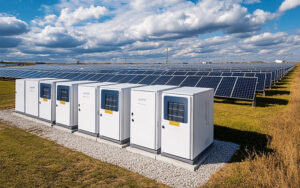The Government has issued Resolution 328 requiring research on carbon tax application for fossil fuel usage activities, targeting a 15-35% reduction in greenhouse gas emissions from the energy sector by 2030. This represents one of the key solutions to fulfill international emission reduction commitments and ensure national energy security.
Emission Reduction and Energy Conservation Targets
Resolution 328 outlines a concrete action program to implement Political Bureau Resolution 70 on ensuring national energy security.
According to this document, Vietnam aims to achieve 8-10% energy savings and 15-35% greenhouse gas emission reductions by 2030. To reach these targets, the Government requires research on carbon tax policy application for fossil fuel usage activities, while establishing clear carbon emission limit standards.
Related agencies are tasked with developing transition plans for coal-fired power plants to switch to natural gas, biomass fuels, hydrogen, ammonia, and other clean energy forms. Ministries, sectors, and localities must implement greenhouse gas emission reduction solutions in the energy sector, appropriate to the country's development conditions and circumstances.

Carbon Tax: A Global Emission Pricing Tool
Carbon tax is a widely applied carbon pricing instrument globally, operating on the "polluter pays" principle.
According to World Bank data, approximately 43 countries and territories have implemented this tool, with European nations pioneering since the 1990s. Each country has different regulations regarding taxable objects and carbon tax revenue allocation methods.
For example, Sweden imposes a tax of 1,478 krona (equivalent to 134 euros) per ton of 100% fossil fuel content like natural gas and coal, without specific regulations on revenue allocation. Meanwhile, Canada applies a 65 USD tax per ton of CO2e emissions for gasoline, oil, and flammable waste. Most of the collected revenue is returned to individuals and households to mitigate carbon tax impacts on living costs, with the remainder allocated to local budgets, farmers, and small and medium enterprises.
Two months ago, Political Bureau Resolution 70 emphasized the importance of building a measurement, reporting, and verification (MRV) system for greenhouse gas emissions according to international standards, while urgently establishing domestic and international carbon trading exchanges to support carbon tax instruments.
Comprehensive Solutions for Energy Security
Resolution 328 also presents multiple synchronized solutions to ensure energy security and respond to climate change.
The Government requires mandatory energy conservation targets for each sector, field, and locality, aiming to gradually eliminate machinery and vehicles with low energy efficiency and high emissions. By 2030, total primary supply and final energy consumption are projected at 150-170 million and 120-130 million tons of oil equivalent, respectively.
To ensure energy security, relevant agencies must diversify supply sources, prioritize domestic energy development, and reduce import dependence. The Government also requires development of a National Energy Industrial Center integrating gas, liquefied natural gas (LNG), electricity, refining, petrochemicals, and renewable energy in advantaged localities.
Regarding research and development, ministries and localities are required to concentrate investment at a minimum rate of 2% of energy sector GDP, while creating strong and highly autonomous mechanisms to encourage enterprises to increase research and development investment. Innovation centers need facilitation to mobilize resources from the private sector to invest in and support enterprises and projects in new and clean energy fields.
Cre: VNExpress






